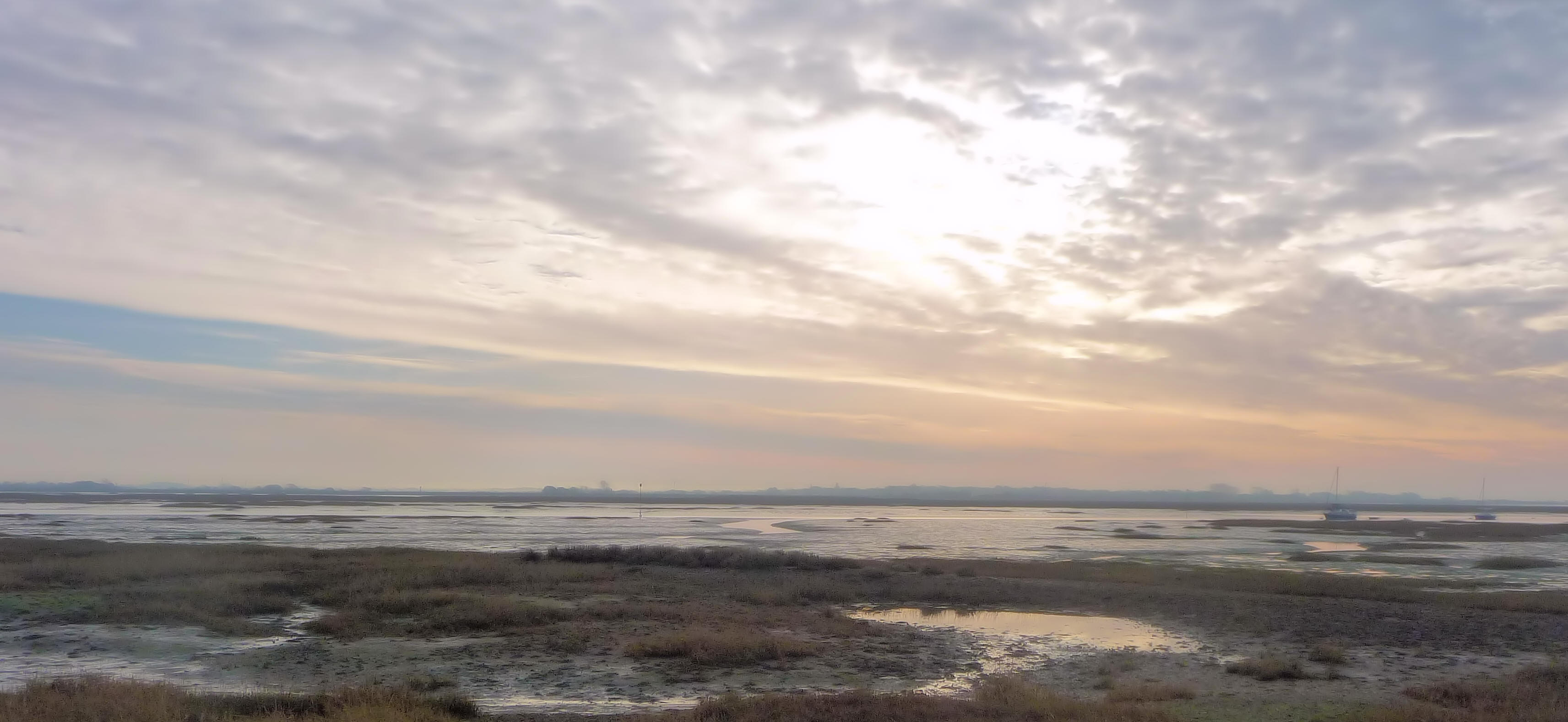Raw sewage discharged into Chichester harbour for over 1,200 hours in a month
Campaigners
say Southern Water outflows into protected wildlife site are
an ‘assault on the environment’

Raw sewage has been discharged into Chichester harbour for
more than 1,200 hours in the past month, in what campaigners
described as “an assault on the environment”.
The protected harbour in West
Sussex,
which is a designated area of outstanding natural beauty
(AONB), has been subjected to the discharges since 24
October.
Data from Southern Water’s Beachbuoy system,
which shows real-time sewage discharges from storm
overflows, reveals the storm outflow at Thornham in
Chichester has been
releasing sewage for 710 hours and five minutes between 24
October and 23 November.
The storm overflow at Bosham, also in the harbour, shows a
number of discharges including one of 281 hours and 24
minutes between 27 October and 8 November, and another of
213 hours and 7 minutes.
Ed Acteson of SOS Whitstable, which campaigns for an end to
raw sewage dumping in Kent, Sussex and Hampshire, said:
“That a coastal bathing location such as Chichester harbour,
a designated area of outstanding natural beauty, should
suffer over 1,200 hours of sewage pollution in a under month
is nothing short of an assault on the environment.”
The wildlife site is one of 34 in England protected
by law to conserve and enhance its natural beauty.
Southern Water has
labelled the raw sewage discharges as “genuine” on its
Beachbuoy app, suggesting it believes they are compliant
with permits issued by the Environment Agency. The company
is blaming heavy rainfall caused by Storm Babet and Storm
Ciarán for the discharges.
Matt Briers, the chief executive of Chichester Harbour
Conservancy, said: “Water quality sampling in the harbour
has confirmed increased levels of pollution following recent
heavy rainfall.
“This highlights the inability of local infrastructure to
cope and the critical importance for urgent improvements to
infrastructure essential in preventing pollution entering
the harbour from storm overflow and runoff.”
Briers said the conservancy group would continue to push for
tighter control of pollution in the sea that was fit for a
protected natural landscape.
He said the group was “extremely concerned” about the impact
of pollution in the harbour resulting from human activity.
This can range from sewage entering the harbour water but
also microplastics, chemicals and nitrates.
“The harbour AONB is one of the most important sites for
wildlife in the UK. Already threatened, its protected
habitats were assessed to be in an ‘unfavourable declining’
condition in 2021,” he said. “Good water quality is
essential for the health of the harbour; particularly for
the wildlife that depend on it.”
Chichester harbour is one of three harbours where Southern
Water is spending £72m on treating more wastewater and
reducing storm overflows to help the natural habitats.
SOS Whitstable also highlighted that during a similar time
period, two outfalls in Sandown, Isle of Wight, had more
than 1,380 hours combined spillage time.
Storm Babet hit
the UK on 18-20 October, with the Met Office recording the
three-day period as the third wettest for England and Wales
since 1891.
Storm Ciarán followed
from 1-2 November, causing a major incident in Hampshire and
the Isle of Wight as it worsened existing flooding problems.
“The astonishing length of the sewage releases … will have a
devastating environmental effect on these areas and, despite
the heavy rainfall in recent weeks, there can be absolutely
no justification over this level of water pollution,” said
Acteson.
“Storm overflows are supposed to be used in exceptional
circumstances to ease pressure on the sewage network. How
could anybody seriously claim that a month of consecutive
sewage pollution is ‘exceptional’?”
A spokesperson for Southern Water said: “We agree with
campaigners and our customers that storm overflow releases
are not acceptable and that’s why reducing this is our top
priority.”
Explaining the cause of these specific incidents, the
spokesperson added: “These longer releases are as a result
of weeks of heavy rainfall, where either surface water is
running off already saturated ground into our sewers, or
groundwater is forcing its way into our pipes as pressure
builds.”
The Guardian 23rd November 2023













